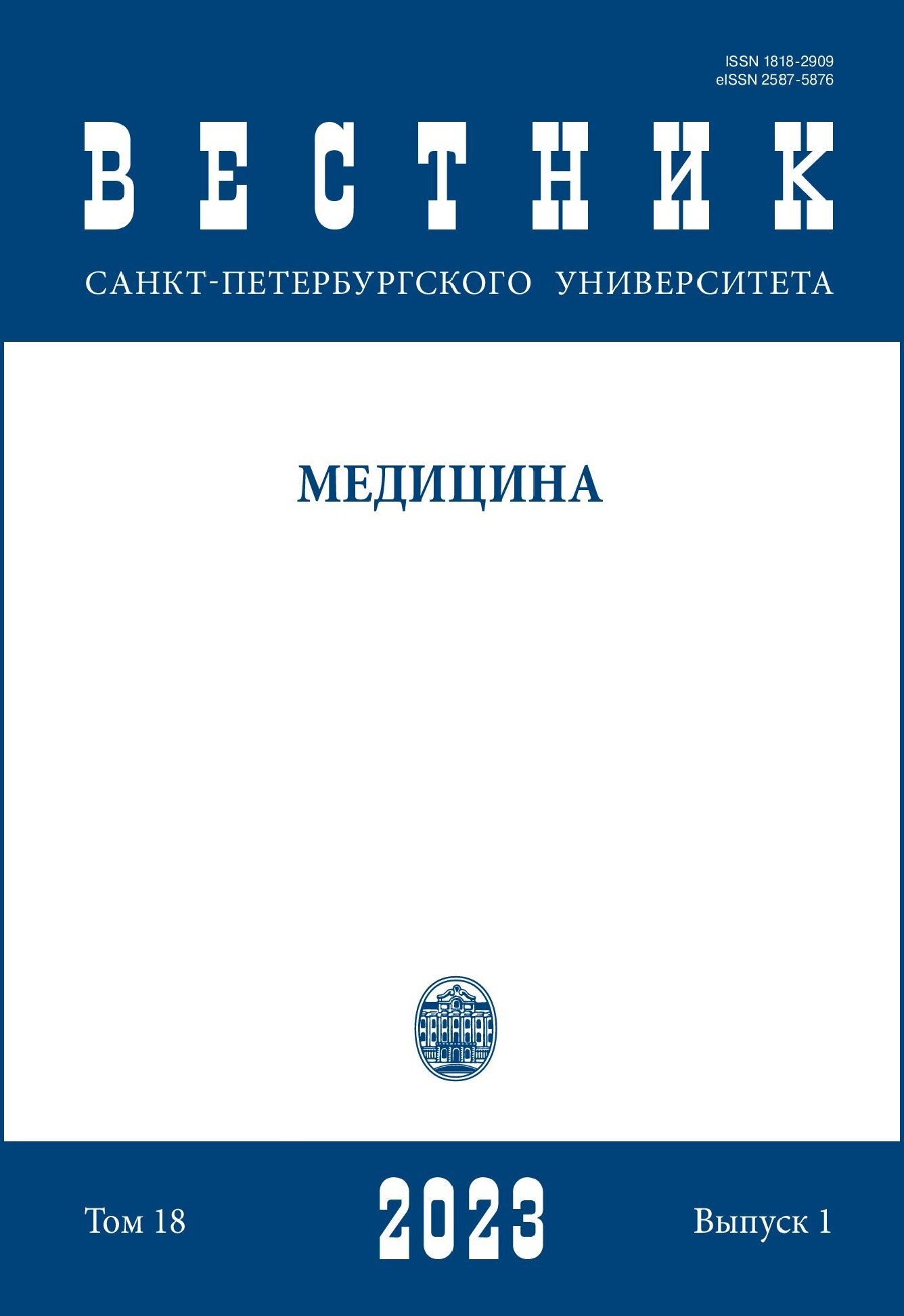Gene polymorphism and professional activity as risk factors for the development of arterial hypertension
DOI:
https://doi.org/10.21638/spbu11.2023.101Abstract
The leading cause of death in the modern world is chronic non-infectious diseases, and the leading metabolic risk factor is high blood pressure. At present, the role of reactive oxygen species in the development of arterial hypertension is well known, and the influence of epigenetic factors, such as social environment, daily routine, nutrition, in combination with genetic predisposition, is an important area of study also. The aim of our study was to identify the frequency of occurrence of polymorphic variants of the arterial hypertension marker gene angiotensinogen (rs4762) in combination with polymorphisms of the genes of enzymes of the antioxidant system: superoxide dismutase 2 (rs4880), and catalase (rs1001179) in emergency doctors, suffering from arterial hypertension. 20 patients participated in the study in whom the diagnosis of hypertension was established prior to inclusion in the study. Deoxyribonucleic acid DNA was isolated from epithelial cells of the oral cavity. Genotyping of samples was performed by real-time polymerase chain reaction. According to the results of our study, the AGT TT variant was not identified in this group, AGT CT was found only in 5 people. In other cases (75%), the development of the disease is not associated with the presence of an unfavorable allele of this gene. At the same time, 50% of those examined by us revealed the presence of an unfavorable T allele of the catalase gene and 80% of the T allele of the superoxide dismutase 2 gene. Considering that the professional activity of emergency doctors is one of the risk factors for the development of arterial hypertension, the presence of a high percentage of unfavorable alleles of antioxidant system enzymes in their genomes that we have identified indicates an increase in the
personal risk of this disease.
Keywords:
arterial hypertension, genetic polymorphism, angiotensinogen, superoxide dismutase, catalase
Downloads
References
References
https://doi.org/10.15372/SSMJ20190607 (In Russian)
Downloads
Published
How to Cite
Issue
Section
License
Articles of "Vestnik of Saint Petersburg University. Medicine" are open access distributed under the terms of the License Agreement with Saint Petersburg State University, which permits to the authors unrestricted distribution and self-archiving free of charge.




